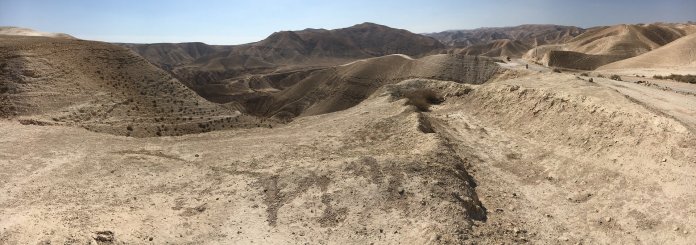Exploring the Prayer of Jabez!

The prayer of Jabez and the man himself are two seemingly minor aspects of the Bible’s Old Testament. Most people, Christians, Jews, Muslims, and non-religious people alike, have little to no knowledge of either the man or the prayer. So what is the prayer of Jabez and why is it rarely discussed?
In this article, we will break this question down. We’ll take a look at the mentions of Jabez within the Bible before going on to look at the prayer of Jabez, analyzing each step to truly understand its importance. So let’s dive right in and start off by taking a look at the man himself.
Who or What was Jabez?
The name itself does create a little confusion and if you were reading the Bible from start to finish, there would be a good reason for it. That’s because the first time we encounter the name ‘Jabez’ it is actually in reference to a town.
This takes place in 1 Corinthians 2:54-55:
The descendants of Salma: Bethlehem, the Netophathites, Atroth-beth-joab,
half the Manahathites, the Zorites, and the clans of the scribes who lived at Jabez…
This is a town that was close to Bethlehem and within Judah. It is unclear whether the area was named after the man, or whether the man was named after the area.
Contact your Guardian Angel and receive your FREE ANGEL READING, just by filling out this form:
It has been suggested that the town was named after him due to his works later in life. Jabez was home to the scribes of the world and it’s possible that Jabez was himself a scribe as well.
Similarly, the prayer of Jabez may have led to the expansion of his territories, just as he had asked, and so he chose to name this new land after himself.
Jabez as a Person
The next time we encounter Jabez is in 1 Chronicle 4:9-10:
Jabez was more honorable than his brothers.
His mother had named him Jabez, saying, I gave birth to him in pain.
Jabez cried out to the God of Israel:
Oh, that you would bless me and enlarge my territory!
Let your hand be with me, and keep me from harm
so that I will be free from pain.
And God granted his request.
Here we learn a few vital pieces of information:
- Firstly, we discover the meaning of the name. Jabez means pain and he is named such because of the difficult labor that his mother went through.
- Secondly, we know that he was honorable out of his kin, or at least more honorable than his brothers.
- Thirdly, we encounter the prayer of Jabez which offers us a deeper insight into the role we play in God’s world.
The prayer of Jabez
The Jabez prayer is an aspect of the Old Testament that requires further exploration. We don’t necessarily need a prayer of Jabez book but if you were to hold a prayer of Jabez bible study group, he is certainly a character who could promote great discussions.
The wording of these passages can offer us deeper insight into the interesting parallels that the Bible holds. We already know that his name means “pain” and yet he “cried out to the God of Israel”. This suggests that he was in pain when the prayer was spoken. Why is that important?
This wasn’t a prayer like any other. This man wasn’t praying in the hopes of acquiring a new car, finding his lost locker key, acing a test after failing to study, or winning the lottery. No…this man was crying out his prayer with desperation, urgency, and commitment.
He had no other options left and yet his faith was truly and completely in God. These are just some of the reasons that the prayer of Jabez is one of the hidden gems from the Bible. Let’s break down the words of the prayer to get a clearer understanding of how we can apply the same faith in God to our own lives.
Understanding the Prayer
So what did Jabez actually pray for? Firstly, he prays for the blessings of God: “Oh, that you would bless me…” This is fairly common in almost all prayers but can take on many different forms.
Some people pray for protection, some for good luck, and others for strength. Jabez prayed for blessings that could mean protection or it could simply mean the acceptance of God, in the same way, that someone’s blessing of a wedding relates more to their approval of it.
He then goes on to ask for a higher level of responsibility within the promised lands of Israel: “…and enlarge my territory!” It isn’t made clear what his intentions are for this land.
It’s possible that he wished only to spread the word of God throughout his territories and by expanding his reach he could also expand the reach of his message.
What we can take away from this is that he realized that no matter what his aims or goals may be, it’s always better to have God on your side.
Lastly, the prayer mentions: “Let your hand be with me, and keep me from harm so that I will be free from pain.” There are arguably two points within this section. He is asking that God remain with him at all times.
Not just in spirit, as he is aware that God is everywhere in spirit, but specifically his hand.
This implies that he wishes to have the power of God on his side, whether it be of positive or negative influence. He also asks for protection, specifically protection from pain and suffering.
This follows on from this earlier mention of blessings which may have been a more spiritual request.
The Message of the Prayer
Despite his prayer taking up only a tiny, barely noticeable section of the Old Testament, the prayer offers us a great reminder of the workings of God.
After all, the prayer ends with the short sentence: “And God granted his request!” We can see that God resects Jabez for a number of reasons:
- For starters, this is a man who has been raised with a name that literally means pain. His mother knows him as pain, his brothers know him as pain, and yet he still has faith and trust in God. It reminds us that no matter how our current situation may look, it is only a tiny part of God’s plan.
- Secondly, God respects the fact that the prayer acknowledges the double-sided nature of every decision. He asked for the hand of God to be with him.
He knows that God could very well choose not to support his actions, particularly if they became immoral, but he trusts himself enough to know that he will stay on the right path and that if he does begin to wonder, he’d prefer to have the hand of God there to nudge him in the right direction.
Crying Out for God
One aspect of this passage that we typically forget about is the nature of the prayer. The prayer of Jabez wasn’t carried out in the comfort of his home just before he went to sleep.
Whatever the situation, he needed God at that moment. This wasn’t just a desire to connect with God, it was a plea for his help.
We can assume that Jabez was an incredibly important figure given that his story appears in the middle of the chronicled genealogy of Judah.
It is highly likely that God chose not to help Jabez until he actually needed his assistance. What doesn’t kill us makes us stronger. This is a lesson that God teaches us time and time again.
Many people view praying as a form of wish fulfillment. If you’ve ever been running late for a bus and have found yourself praying for the bus to be late so that you don’t have to wait another 20 minutes for the next one, then you’ll understand what I’m talking about.
This Bible passage seeks to remind us that while we can pray to God whenever we like and for whatever reason, it is not in God’s nature to help people who don’t truly need it, especially if refusing to help will benefit that person in greater ways.
Learning from the Prayer
So what can we take away from this prayer? Well, we can see that God wants honesty from us, no matter what the circumstances.
After all, he already knows everything and so lying does nothing to hide the truth and yet does everything in terms of revealing our personality and morality. We also need to respect the wishes of God.
In the case of Jabez, God chose to help him because it furthered his own plan. If you wish to help God, rather than yourself, then let him know that in your prayer and keep an eye out for signs.
Lastly, we need to remember that praying to God isn’t wish-fulfillment. It’s better to pray in a time of genuine need rather than during a time of minor inconvenience.

